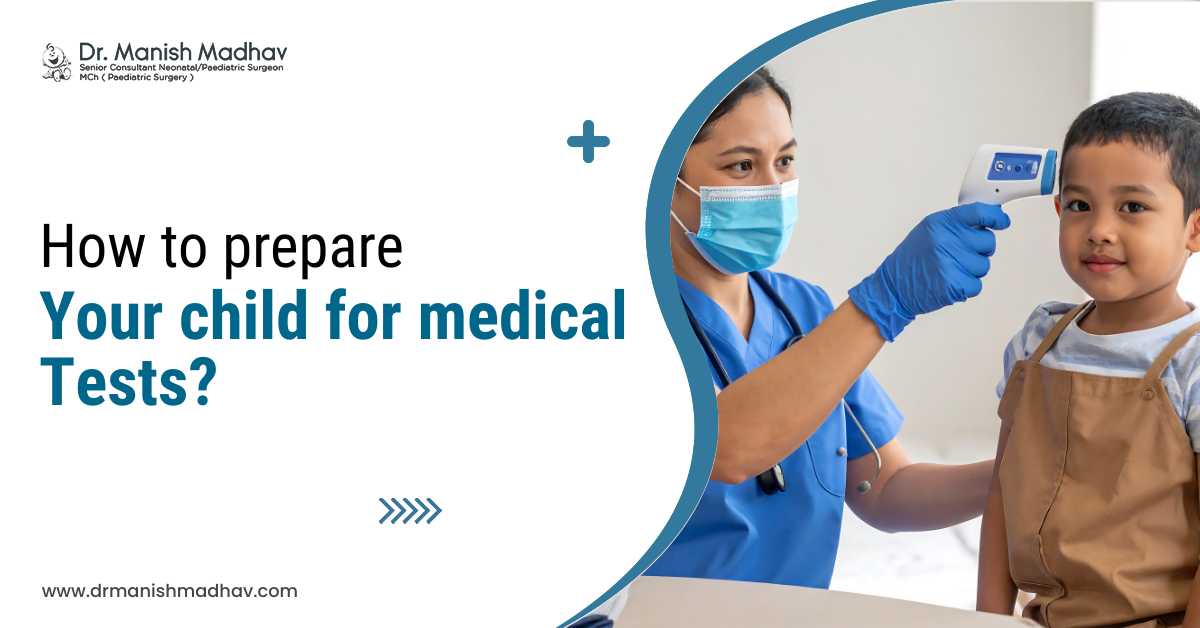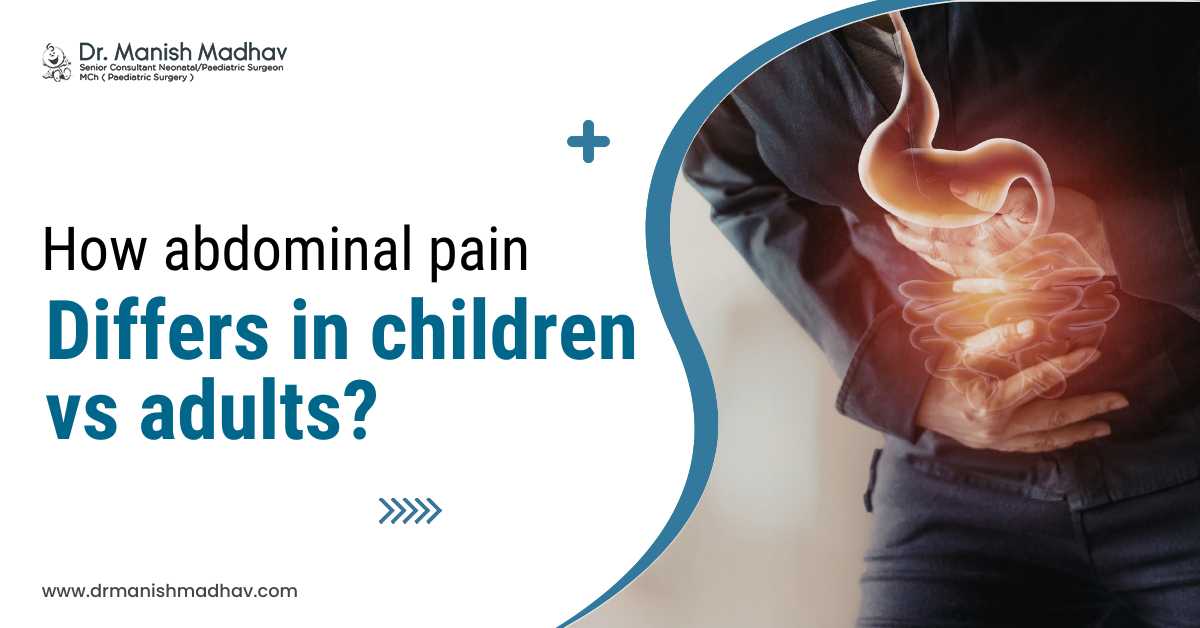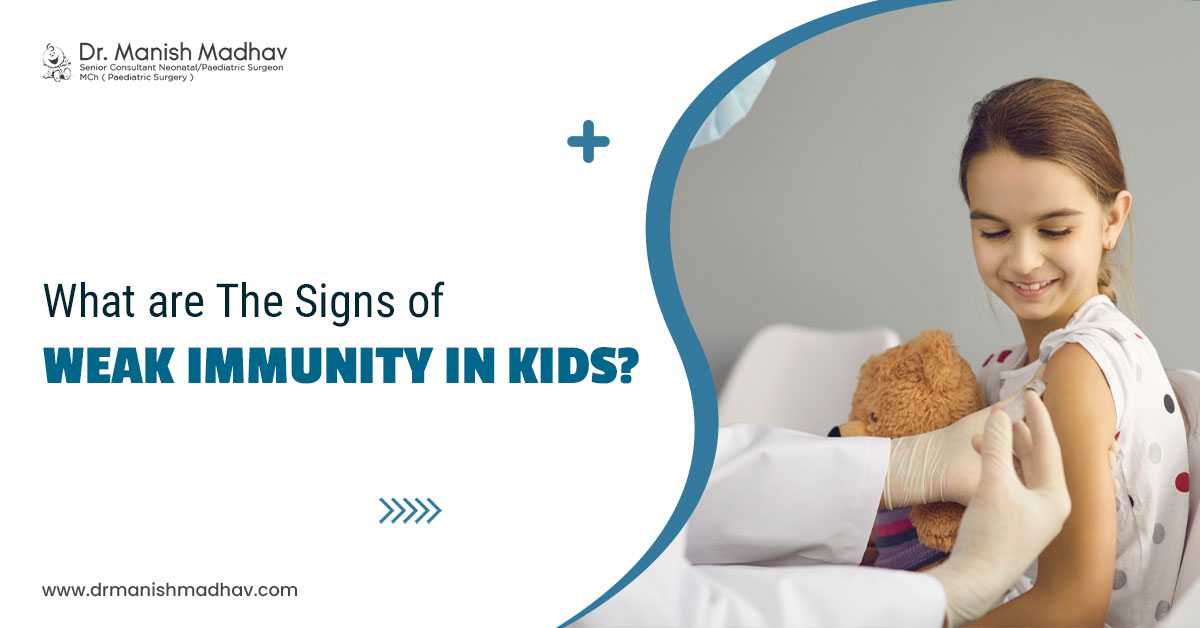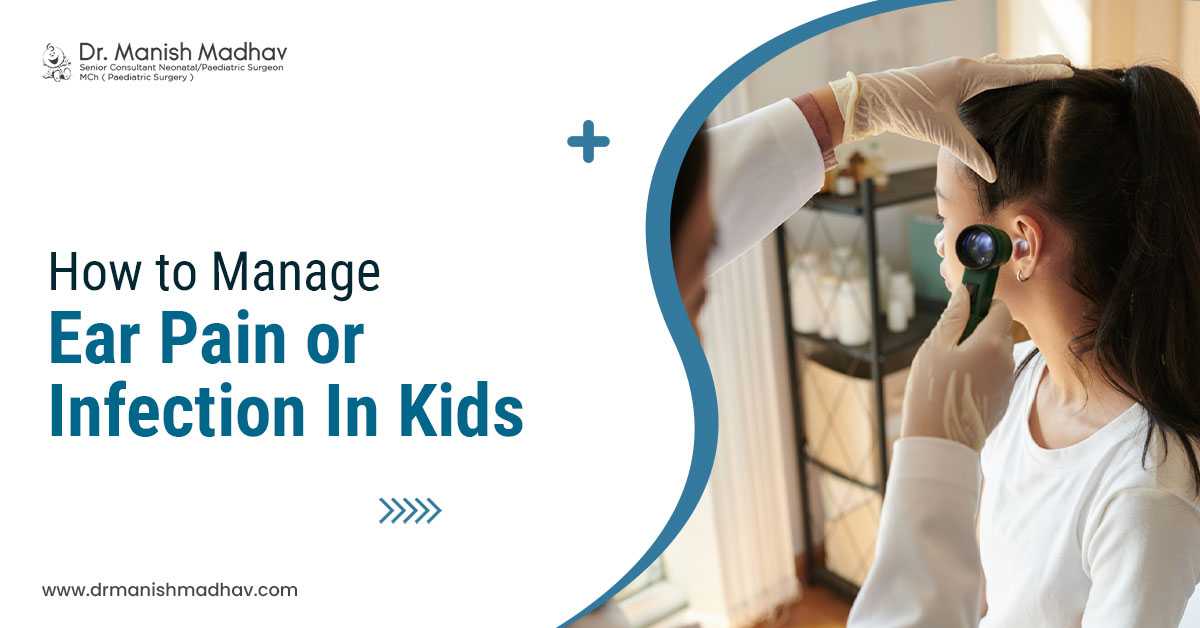One of the most frequent causes of parents taking their kids to the doctor is ear earache. Ear pain can be upsetting for both adults and kids. You may see that your kid is pulling at his/ her ear, weeping at night, or complaining about discomfort.
Do not worry because most ear infections are highly treatable, and your kid can heal fast and pleasantly with the correct treatment. You might seek expert help from the top child doctor Siliguri, like Dr. Manish Madhav.
This blog will tell you about the causes of ear infections in children, how to identify the symptoms, helpful home remedies, and when to seek medical attention. Make sure you do not delay seeing a pediatrician or child specialist, as this is vital to better recovery.
Overview of Childhood Ear Infections
An ear infection, commonly known as otitis media, is caused by inflammation or fluid buildup in the middle ear. This is the tiny area behind the eardrum. And it frequently happens following a respiratory infection, cold, or sore throat.
The Eustachian tubes are the tiny passageways that connect the middle ear to the back of the throat. These are shorter and more horizontal in children than in adults, which makes your kid more vulnerable to ear infections. Here, this facilitates the entry of bacteria and the trapping of fluid in the ear.
Let’s Explore the Common Reasons for Ear Infections
- Viral or bacterial infections: They frequently occur after a cold or the flu.
- Allergies: May result in fluid accumulation and irritation.
- Sinus infection: Infections of the sinuses may transfer viruses or bacteria to the ear.
- Bottle feeding while lying down: The risk of fluid getting into the ear is increased when bottle feeding while lying down.
- Second-hand smoke: Increases the risk of infection by irritating the respiratory system.
You can lower your child's risk of recurrent ear issues by taking preventive measures after learning about these factors.
Understand the Symptoms of Ear Pain in Kids
Children, especially toddlers and babies, are sometimes unable to show or express what is bothering them. Because of this, it's critical to identify the symptoms of ear pain.
Typical Symptoms Include:
- Pulling or tugging the ears: Particularly on one side.
- Irritability or crying: More apparent when lying down or at night.
- Changes in ear pressure: This can cause difficulty falling asleep.
- Fever: Usually moderate, although bacterial infections might cause a high fever.
- Fluid or pus from the ear: An eardrum rupture may be indicated by fluid or pus coming from the ear.
- Hearing difficulties: Inattention or muffled sounds are signs of hearing problems.
- Balance issues: Equilibrium is impacted by the inner ear.
It's advisable to have your child's ears examined by a medical professional if they have multiple of these symptoms.
When You Should Consult a Child Specialist?
The majority of minor earaches will go away in a day or two, but occasionally medical help is required.
Speak with a physician if:
- More than 48 hours pass, and the pain persists.
- The temperature of your child is more than 102°F (38.9°C).
- The ear is leaking blood, pus, or fluid.
- Your toddler appears to be very sleepy or uncooperative.
- The ear infection keeps recurring.
- Using an otoscope, paediatricians can examine the ear to see if antibiotics or other therapies are required.
Here are Some Home Remedies to Soothe Ear Pain
Some home treatments can help reduce moderate discomfort or aid in healing for your kid, but you should always see a doctor if symptoms are severe.
1. Use a Warm Compress
For ten to fifteen minutes, apply a warm, damp towel gently to the afflicted ear to ease pressure and lessen pain. And, to prevent burns, make sure the compress is warm rather than hot.
2. Maintain an Elevated Head
You should encourage your youngster to sleep with their head up a little. This can relieve ear pressure and aid in the drainage of fluid. Make sure when feeding babies, keep them partially upright. You might seek advice from one of the best child specialists in Siliguri or an expert near you.
3.Use Over-the-Counter Pain Relief
Ibuprofen (Motrin, Advil) or acetaminophen (Tylenol) helps lower fever and pain, but they are given only when prescribed by a pediatrician. Always pay close attention to the dosage recommendations depending on your child's weight and age.
4.Promote Hydration and Rest
The immune system fights infection when it gets enough sleep. So, to keep your child from becoming dehydrated, especially if they have a fever, provide them with water, soups, or electrolyte drinks.
5.Give Your Ears a Little Massage
Improving circulation and easing the discomfort brought on by fluid accumulation can be achieved by gently massaging the area around the ears and neck. Make sure that if it hurts your kid, stop right away.
6.Don't Use Ear Drops Without a Doctor's Advice
Unless directed by a physician, never apply oils, drops, or herbal medicines to the ear, particularly if there is fluid leakage, since this could exacerbate the disease or harm the eardrum.
What are the Medical Treatments for Pediatric Ear Infections?
A pediatrician might suggest the following therapies if your child's symptoms worsen or continue:
Antibiotics
Antibiotics like amoxicillin are frequently used for treating bacterial ear infections in kids. Plus, even if your child starts feeling better early, make sure they finish the entire course.
Ear Drops
When the eardrum is intact or for specific infections, pediatric ear drops containing steroids or antibiotics may be administered.
Ear Tubes
Tiny tubes that aid in fluid drainage and prevent recurrence may be inserted during a simple surgical procedure for kids. These ear tubes work well for kids with persistent ear infections.
Hearing Test
Hearing may be momentarily compromised by recurrent ear infections. But, to make sure there isn't any long-term harm, doctors may conduct hearing exams.
Comfort measures have a significant impact on your child's healing in addition to prescription medication. During painful moments, provide your little one with additional comfort, comfort, and cuddling.
If you need to divert them, engage them in peaceful playtime or read their favorite books. Until the ears are completely recovered, stay away from loud noises and activities that put pressure on them, such as diving or flying.
You can also keep an eye on their hearing; notify your pediatrician if your child seems distracted, speaks loudly, or doesn't react to sounds. Reach out to the top child doctor Siliguri for personalized ear infection treatment.
Comments (0)




